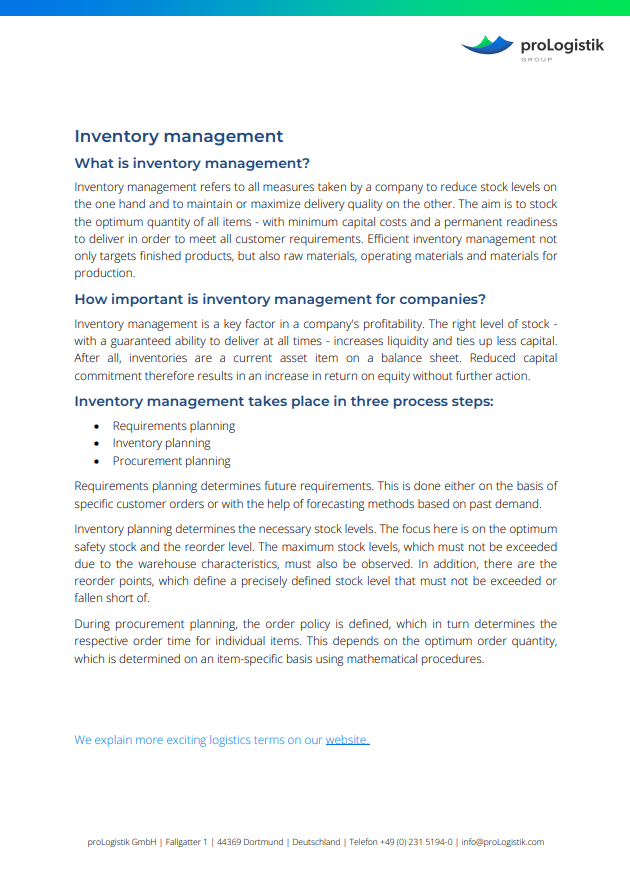What is inventory management?
Inventory management refers to all measures taken by a company to reduce stock levels on the one hand and to maintain or maximize delivery quality on the other. The aim is to stock the optimum quantity of all items – with minimum capital costs and a permanent readiness to deliver in order to meet all customer requirements. Efficient inventory management not only targets finished products, but also raw materials, operating materials and materials for production.
How important is inventory management for companies?
Inventory management is a key factor in a company’s profitability. The right level of stock – with a guaranteed ability to deliver at all times – increases liquidity and ties up less capital. After all, inventories are a current asset item on a balance sheet. Reduced capital commitment therefore results in an increase in return on equity without further action.
Inventory management takes place in three process steps:
- Requirements planning
- Inventory planning
- Procurement planning
Requirements planning determines future requirements. This is done either on the basis of specific customer orders or with the help of forecasting methods based on past demand.
Inventory planning determines the necessary stock levels. The focus here is on the optimum safety stock and the reorder level. The maximum stock levels, which must not be exceeded due to the warehouse characteristics, must also be observed. In addition, there are the reorder points, which define a precisely defined stock level that must not be exceeded or fallen short of.
During procurement planning, the order policy is defined, which in turn determines the respective order time for individual items. This depends on the optimum order quantity, which is determined on an item-specific basis using mathematical procedures.

